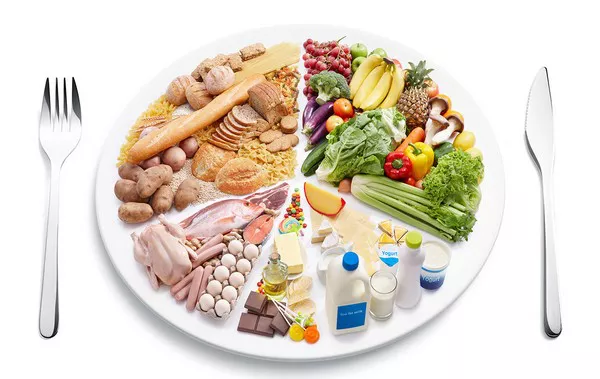In the pursuit of rapid weight loss, adopting a balanced and effective diet is paramount. While quick weight loss can be motivating, it’s essential to approach it with a focus on health and sustainability. Crash diets or extreme eating plans may yield rapid results initially but can often lead to adverse effects on metabolism and overall well-being in the long run. Instead, a strategic combination of dietary choices can support both weight loss and overall health goals. Here’s a comprehensive guide to crafting a diet that promotes rapid weight loss effectively and safely.
Understanding Caloric Deficit
At the core of any successful weight loss plan lies the concept of a caloric deficit. This means consuming fewer calories than your body expends, forcing it to burn stored fat for energy. While it’s tempting to drastically slash calorie intake, doing so excessively can trigger metabolic slowdown and nutrient deficiencies. Instead, aim for a moderate reduction in calories—typically around 500 to 750 calories less than your maintenance level per day—to facilitate steady and sustainable weight loss.
Macronutrient Balance
Balancing macronutrients—protein, carbohydrates, and fats—is crucial for optimizing weight loss outcomes while maintaining muscle mass and energy levels.
1. Protein: Incorporate lean protein sources like poultry, fish, tofu, legumes, and low-fat dairy into your meals. Protein plays a vital role in preserving muscle mass during weight loss and helps you feel fuller for longer.
2. Carbohydrates: Opt for complex carbohydrates such as whole grains (brown rice, quinoa, oats), vegetables, and fruits. These provide sustained energy and essential nutrients like fiber, which aids in digestion and promotes satiety.
3. Fats: Choose healthy fats like those found in nuts, seeds, avocados, and olive oil. These fats support hormone regulation and promote feelings of fullness without excessive calorie intake.
Strategic Meal Planning
Effective meal planning can simplify adherence to a weight loss diet and prevent impulsive, unhealthy choices. Consider the following strategies:
1. Regular Meals: Aim for three balanced meals per day, supplemented by healthy snacks if needed. Consistency can help regulate metabolism and prevent overeating.
2. Portion Control: Use smaller plates to control portion sizes and avoid mindless eating. Pay attention to hunger cues and stop eating when satisfied, not overly full.
3. Preparation: Plan meals ahead of time and batch-cook healthy options to avoid the temptation of fast food or unhealthy convenience meals.
Foods to Emphasize
Certain foods are particularly beneficial for rapid weight loss due to their nutrient density and low-calorie content:
1. Leafy Greens: Spinach, kale, and other leafy greens are rich in fiber and nutrients while being low in calories.
2. Lean Proteins: Chicken breast, fish, tofu, and beans are excellent sources of protein that promote muscle maintenance and satiety.
3. Whole Grains: Opt for whole grains like quinoa, brown rice, and barley over refined grains for sustained energy and improved satiety.
4. Fruits and Vegetables: These are high in fiber, water content, and essential vitamins, making them ideal for weight loss.
Avoiding Pitfalls
While focusing on nutritious foods, it’s equally important to steer clear of common dietary pitfalls that can hinder weight loss progress:
1. Processed Foods: Limit consumption of processed snacks, sugary beverages, and fast food, which are often high in calories and low in nutrients.
2. Liquid Calories: Be mindful of liquid calories from sugary drinks, alcohol, and excessive fruit juices, which can add up quickly without providing satiety.
3. Extreme Restriction: Avoid excessively restrictive diets that eliminate entire food groups, as these can lead to nutrient deficiencies and cravings.
Incorporating Physical Activity
A healthy diet should be complemented by regular physical activity for optimal weight loss results. Cardiovascular exercises like brisk walking, running, or cycling can enhance calorie expenditure, while strength training helps preserve lean muscle mass and boosts metabolism.
Seeking Professional Guidance
Before embarking on any weight loss journey, consult with a healthcare provider or a registered dietitian. They can provide personalized guidance based on individual health needs and goals, ensuring a safe and effective approach to rapid weight loss.
Conclusion
Achieving rapid weight loss through diet requires a balanced, sustainable approach that prioritizes nutrient-dense foods and caloric moderation. By focusing on a well-rounded diet rich in lean proteins, complex carbohydrates, healthy fats, and plenty of fruits and vegetables, combined with regular physical activity and portion control, individuals can achieve their weight loss goals efficiently while supporting overall health and well-being. Remember, successful weight loss is not just about shedding pounds quickly—it’s about fostering lifelong habits that promote vitality and wellness.
Related Topics:



























